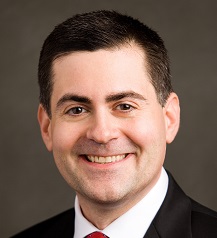By Bob Allen
The U.S. Supreme Court revived Notre Dame University’s religious objections to required coverage of contraceptives in Obamacare March 9, vacating a lower court’s decision favoring the federal government and ordering review in light of last summer’s landmark decision involving the Hobby Lobby craft store chain.
 Russell Moore, head of the Ethics and Religious Liberty Commission of the Southern Baptist Convention, applauded the decision.
Russell Moore, head of the Ethics and Religious Liberty Commission of the Southern Baptist Convention, applauded the decision.
“The Supreme Court took a big step in the direction of liberty and justice,” said Moore, whose agency filed a friend-of-the-court brief on behalf of Hobby Lobby in January 2014. “I pray that the present Administration will stop its reckless disregard of soul freedom and liberty of conscience.”
In February 2014 the 7th U.S. Circuit Court of Appeals refused to grant the Catholic university a preliminary injunction, finding little likelihood that Notre Dame could prove that Affordable Care Act regulations requiring nonprofit organizations to inform the government they are opting out the contraceptive mandate imposes a “substantial” burden on the school’s religious liberty.
That was before the Supreme Court ruled 5-4 last June that Hobby Lobby does not have to offer health insurance coverage for types of birth control that conflict with the owners’ Southern Baptist beliefs.
Both Hobby Lobby and Notre Dame argued that requiring them to offer insurance coverage for things they regard immoral violates their rights under the Religious Freedom Restoration Act, a federal law passed in 1993. RFRA, passed with the support of religious groups including the Baptist Joint Committee for Religious Liberty, prohibits the government from “substantially” burdening a person’s exercise of religion without “a compelling governmental interest.” If there is a compelling interest, it must be furthered by the “least restrictive means.”
Unlike Hobby Lobby, Notre Dame qualifies for accommodation for certain employers that object to contraception on religious grounds. Regulations require qualified organizations to inform the government they do not intend to cover contraceptives, and the government in turn requires a third-party insurer to supplement the employee’s plan with contraceptive coverage without cost-sharing to the patient.
Notre Dame argues that even the act of filling out the self-certification form violates the university’s RFRA rights, because it “triggers” the third-party coverage and enables employees to obtain services that conflict with Catholic teachings.
While ruling only on the injunction and not the merits of the claim, the 7th Circuit appeared skeptical of that argument. Notre Dame already uses Meritain Health, a subsidiary of Aetna, to administer its employee health plan.
“The key word is ‘enable,’ and it’s inaccurate,” the appeals court reasoned. “Federal law, not the religious organization’s signing and mailing the form, requires health care insurers, along with third-party administrators of self‐insured health plans, to cover contraceptive services.”
Recently the 3rd U.S. Circuit Court of Appeals agreed, finding that “a self-certification form that they object on religious grounds to providing such coverage,” if anything, “is a declaration that they will not be complicit in providing coverage.”
In a similar case, GuideStone Christian Resources, insurer for the Southern Baptist Convention, won an injunction preventing the government from enforcing the contraceptive mandate in December 2013. That ruling is under appeal in the 10th U.S. Circuit Court of Appeals in Denver.
Previous story:
